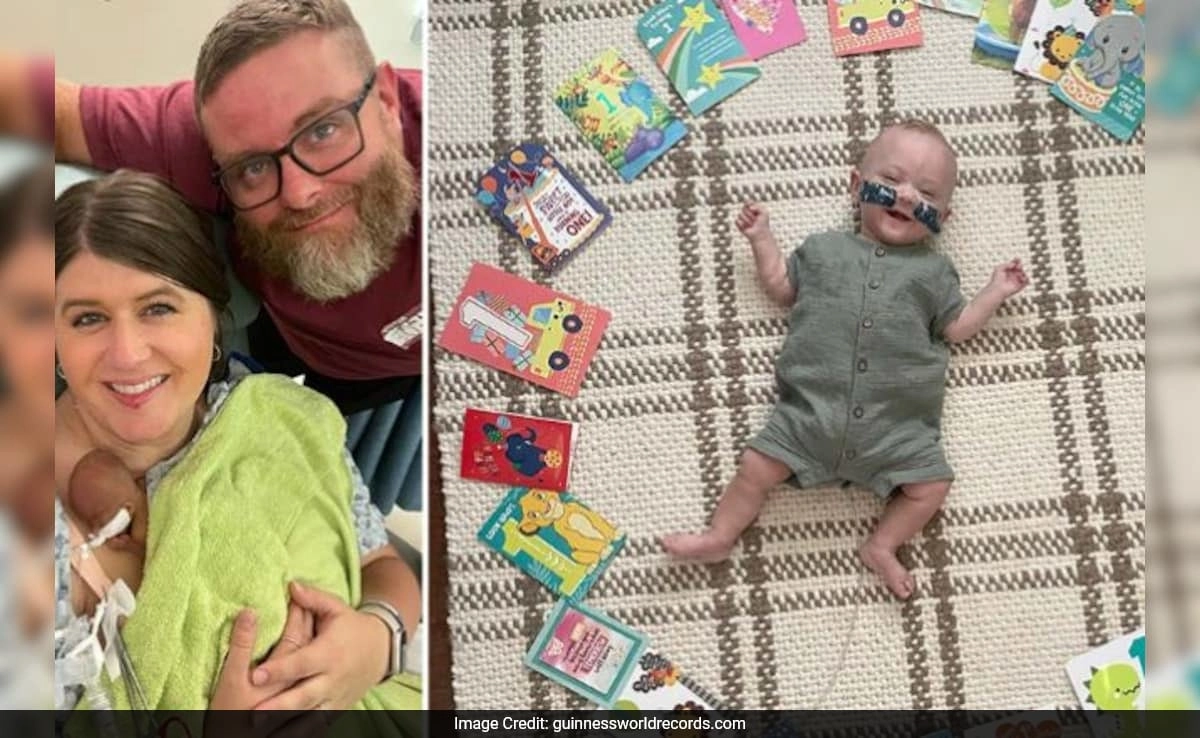In a remarkable testament to the resilience of life, the world’s most premature baby has celebrated her first birthday, setting a Guinness World Record in the process. Born at just 21 weeks and one day gestation, little Richard Scott William Hutchinson entered the world on June 5, 2020, weighing a mere 420 grams (approximately 14.8 ounces). Her early arrival was marked by an uncertain prognosis, as babies born at such an early stage typically face severe health challenges. However, against overwhelming odds, Richard has not only survived but thrived, showcasing the incredible advancements in neonatal care and the unwavering strength of the human spirit.
Richard’s journey has been nothing short of extraordinary. After spending over six months in the neonatal intensive care unit (NICU), she overcame numerous medical hurdles, including respiratory distress and infections that often afflict premature infants. Her medical team employed cutting-edge interventions and therapies, demonstrating the critical importance of specialized care for the most vulnerable patients. This remarkable survival story has garnered international attention, highlighting both the challenges and triumphs associated with extreme prematurity.
As Richard celebrates her first birthday, her family reflects on the emotional rollercoaster of the past year—filled with hope, fear, and ultimately joy. They credit the dedicated medical professionals who fought tirelessly for her survival, as well as the support of family and friends who rallied around them during the most challenging times. Richard’s story serves as an inspiring reminder of the strength of human life, even in its most fragile form. As she continues to grow and develop, her family looks forward to all the milestones yet to come, embodying the spirit of hope and resilience that has marked her first year.
In recognition of her incredible journey, Richard has been officially acknowledged by Guinness World Records as the most premature baby to survive, a title that shines a light on the advances in neonatal medicine and the importance of continued research in this field. Her story not only offers a beacon of hope to other families facing similar challenges but also emphasizes the need for ongoing support and innovation in medical practices that can save lives. As she embarks on her second year, the world watches with bated breath, eagerly anticipating the milestones ahead for this remarkable little girl.




